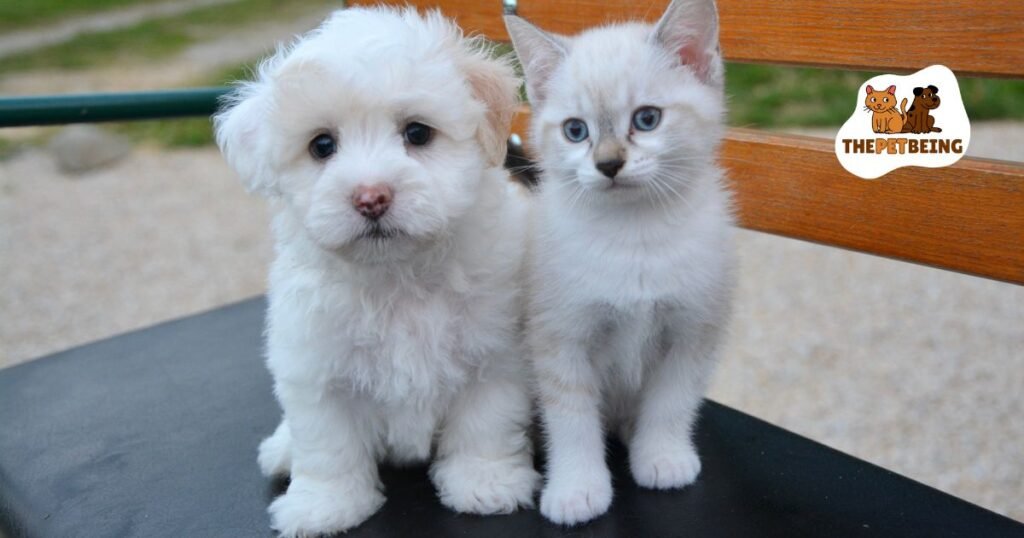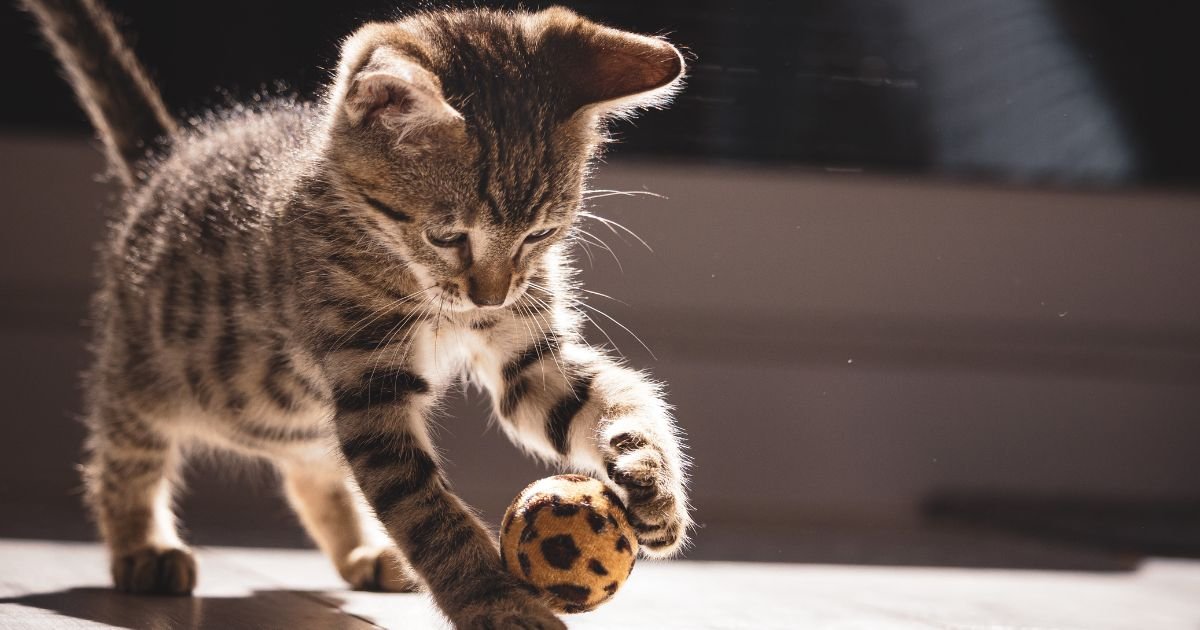How To Care For A Barn Cat? Tips for Caring for Barn Cats:
- Ensure barn cats receive proper care.
- Feed barn cats daily.
- Supply water for your barn cats.
Caring for your barn cat is simple – ensure they receive fresh food and water daily. During winter, be vigilant about refreshing the water regularly to prevent freezing. It’s crucial not to depend solely on rodents for the nutrition of outdoor cats; they require a nutrient-rich diet to maintain a healthy life.
Barn cats are not only charming, but they’re also handy. Caring for barn cats is essential to owning a farm or any other outdoor space with animals. Barn cats help in various ways. If you’ve recently become the owner of a barn cat, it is vital to fulfill your duties so that these felines live as healthy and comfortable as possible – and that’s where this blog post comes in! Read on for tips and advice about probing for your new barn cat friend! Barn cats are an adorable addition to any rural property.
Often community cats, these little furballs will make themselves home on your farm, providing hours of entertainment and playful cuddles. However, while barn cats might seem low-maintenance compared to purebreds indoors, they still need special care. In this blog post, we’ll be walking through exactly how you should care for a barn cat, from understanding its needs and dietary requirements to ensuring it is comfortable outside its forever home.
Tips To Care For A Barn Cat

Providing Shelter for Your Barn Cat
One of the most essential steps in caring for a barn cat is providing a suitable shelter. Unlike house cats, barn cats are exposed to the harsh elements of nature.
A warm, dry, and secure protection can give them the comfort they need. The shelter doesn’t have to be luxurious.
A small wooden or plastic box filled with straw or old blankets will suffice. Ensure the ceiling is raised off the ground to avoid dampness and cold drafts.
Regular Feeding is Essential
Barn cats are excellent hunters, but depending on hunting alone may not provide them with all the nutrition they need.
A regular feeding schedule ensures they receive a balanced diet.
Dry food is often recommended for its long-lasting nature, but offering wet food can help in hydration. Always provide fresh water in a clean bowl.
Fresh Water Supply
Having a freshwater supply for barn cats is very important. Cats need water to stay healthy and feel good, just like people.
Make sure to give your barn cat fresh water every day. It’s best to replace the water in their bowl often to keep it clean.
Sometimes, cats may need to drink more water, especially if they eat a lot of dry food.
So, check the water level in their bowl daily and fill it up when it’s low. A fresh water supply will help your barn cat stay happy and healthy!
Regular Health Check-Ups
How To Care For A Barn Cat? Preventative healthcare is essential for barn cats. Regular health check-ups by a professional doctor can help detect any health issues early.
Ensure your barn cat is vaccinated regularly and treated for fleas, ticks, and worms. Also, having them spayed or neutered is essential to prevent overpopulation.
Providing Boredom Busters
Even barn cats need fun! Keep your furry friend entertained with simple toys that aid in mental stimulation.
You could use a ball of yarn, a laser pointer, or even boxes for them to explore.
Also, consider installing a bird feeder within their sight but out of reach. This acts like a “Cat TV,” keeping them engaged for hours.
Remember, a playful cat is a happy cat, so provide plenty of options for them to pounce, chase, and leap!
Show Them Affection
Barn cats may not demand the same level of attention as house cats, but they still need love and care. Show them affection when you feed them or visit their shelter.
They may be independent creatures but will appreciate your love and care. Caring for a barn cat goes beyond just providing food and shelter.
It involves providing regular healthcare and offering them affection. With the proper care and attention, your barn cat will thrive and be a valuable addition to your farm.
Provide Enrichment
Just like humans, barn cats need to have their minds challenged. You can do this by providing fun activities for them. Try hiding their food or treats so they can hunt for it.
You can also give them climbing platforms or scratching posts. These enrichments keep them happy, active, and sharp.
Monitor for Signs of Predation
Barn cats may face threats from other wild animals. It’s your job to keep an eye out for signs of danger.
Look for footprints, droppings, or signs of a struggle near your barn. If you see anything unusual, it might mean there’s a predator.
You may need to take extra steps to keep your barn cat safe. Always watch and care for your cat.

Litter Box Placement
The right spot for a litter box is critical. Please place it in a quiet, easy-to-reach location. Avoid busy areas or places close to their food and water.
The box should be big and clean. Cats like privacy when they do their business.
Please keep it away from loud noises to ensure they are comfortable. This way, your barn cat will be encouraged to use their litter box regularly.
Social Interaction
Barn cats, like all cats, need time with others. They love to play and share time with humans or other cats. A friend can keep them happy and stop them from feeling lonely.
Spend time each day to play or sit with your barn cat. This helps build trust and makes the cat feel loved. Remember, a happy cat is a good friend.
Best Diet For Your Barn Cat
Simplifying the Best Diet For Your Barn Cat
The best diet for a barn cat should be balanced and nutritious. It should include proteins, carbohydrates, vitamins, and minerals like a human diet.
Proteins from meat or fish are essential for their growth and strength. Carbohydrates provide energy, while vitamins and minerals keep them healthy and boost their immune system.
It’s good to mix wet and dry food. Damp food helps keep them hydrated, while dry food suits their dental health.
Also, remember to provide fresh water daily. A well-fed cat is a happy and healthy cat.
The Basics – Meat is Key
Packed with the protein they need, meat is critical to barn cats. So, they require a high-protein diet to stay strong and healthy.
Giving them a mix of chicken, beef, or fish is good. It helps them grow, build strong muscles, and keep their skin and fur healthy.
Avoid giving them too much processed or canned meat as it could have harmful additives. Always go for fresh or raw meat with all the essential nutrients your barn cat needs.
Understanding Commercial Cat Food
When shopping for commercial cat food, choose a product that lists a source of animal protein as the first ingredient.
Avoid foods with excessive fillers like corn, wheat, or soy. While these ingredients may be used in small amounts, they should not be the main components of the food.
Wet Food versus Dry Food
Both wet and dry foods have their roles in a barn cat’s diet. Dry food is convenient, less expensive, and good for dental health.
Wet food, however, helps maintain hydration levels in your cat’s body, especially during hot weather. Combining both types can be an ideal option for your barn cat.
The Importance of Taurine
Taurine is a vital nutrient for cats. It is an amino acid essential for their heart health, eyesight, and immune system. Commercial cat food often contains taurine.
But if your cat’s diet is homemade, it might lack taurine. In this case, consider getting a taurine supplement to keep your barn cat healthy.

Fresh Water is a Must
Providing your barn cat with fresh water daily is crucial. Cats often don’t drink enough, which can lead to health problems.
Ensure they always have access to fresh water, preferably in a large, shallow bowl. Remember to refill it daily and keep it in a place that’s easy for them to access.
Treats and Snacks
Treats and snacks can be an excellent way to reward your barn cat. However, they should always use a proper diet.
Treats should be healthy and low in calories. Treat your barn cat to small pieces of cooked chicken or fish.
Never give them sweets or human snacks, as these can harm their health. Treats should only make up about 10% of their diet.
Be Wary of Certain Foods
Certain foods can be harmful to barn cats. These include chocolate, caffeine, alcohol, onions, garlic, and certain fruits like grapes and raisins.
These foods can cause serious health problems in cats, such as kidney failure or heart issues. Also, avoid giving your barn cat or dog food, as it lacks the essential nutrients they need.
It’s best to stick to a balanced diet specially designed for cats to keep them healthy and strong.
Protecting Your Barn Cat From Common Diseases
Barn cats often face more health risks than indoor cats due to their outdoor lifestyle.
They encounter different animals, plants, and environments, exposing them to various diseases. Let’s discuss how to protect your barn cat from common illnesses.
Regular Doctor Visits
Routine doctor visits play a crucial role in keeping your barn cat healthy. A doctor can help spot any early signs of disease and provide appropriate treatment.
Regular check-ups can ensure your cat gets the necessary vaccinations, preventing diseases like rabies, feline leukemia, and distemper.
Flea and Tick Control
Fleas and ticks are common problems for barn cats. These pests can cause discomfort and spread diseases.
To protect your cat, use flea and tick control products. These come as collars, sprays, or spot-on treatments.
Always check your cat for these pests and remove them safely. Regular treatment can keep your barn cat happy and healthy.
Proper Nutrition
A balanced diet is vital to maintaining your barn cat’s health. It should include proteins, vitamins, and carbs.
Fresh meat or fish provide necessary proteins. Wet and dry foods both have benefits. Wet food keeps your cat hydrated, while dry food helps dental health.
Water is essential, too, so always provide fresh water. Avoid foods like chocolate, caffeine, and certain fruits, as they can harm your cat’s health.
Maintain Hygiene
Maintaining hygiene is essential for a barn cat’s health. Clean their feeding and sleeping areas regularly. Use safe products to clean their space.
Regular grooming also helps keep their fur clean and free from pests. This simple routine can help prevent diseases and ensure a happy cat.
Vaccinations
It’s essential to keep up with your barn cat’s vaccination schedule. Vaccines help protect against diseases like feline calicivirus, herpesvirus type 1, and panleukopenia. Always consult your vet about which vaccines your cat needs.
Dental Care
Cats can suffer from dental diseases that can affect their overall health.
Regular dental check-ups with your vet can help keep your cat’s teeth healthy and prevent diseases.
Barn cats are resilient but still need protection from diseases. Regular care and attention can keep your barn cat healthy and happy.
Remember, prevention is always better than cure. By following these tips, you can ensure your barn cat’s long, healthy life.
A Simple Guide to Choosing a Barn Cat
Selecting a barn cat requires careful thought and consideration. Here’s a straightforward guide to help you with your decision.
Begin by considering the cat’s age. While kittens are adorable, they may not have developed the necessary skills to thrive in a barn environment.
Next, assess the cat’s personality. Barn cats should be independent but not overly fearful. A barn cat must be comfortable around people, other cats, and possibly other animals. Take note of the cat’s health.
Barn cats must be robust and healthy, as they’ll be exposed to various weather conditions and potential hazards.
Think about the cat’s hunting prowess. One of the advantages of having a barn cat is their natural hunting instincts, which can help control pests like Remember.
Remember to consider whether the cat is spayed or neutered. This is crucial to prevent the cat from producing unwanted litter and mitigate specific behavior issues. If the cat still needs to be spayed or neutered, make arrangements to do this.
Lastly, take time to interact with the cat before making your decision. This will show you whether you feel connected with the cat and if it seems comfortable around you.
Conclusion
How To Care For A Barn Cat? Caring for a barn cat involves providing the proper nutrition, ensuring regular health check-ups, and maintaining a clean environment. A balanced diet rich in proteins, vitamins, and carbohydrates is essential. Regular visits to the doctor are also crucial to keep tabs on their health and to ensure they receive necessary vaccinations. Hygiene is another important factor; always clean their feeding and resting areas and groom them often to keep their fur free from pests. Remember that prevention is better than cure; today’s simple steps can ensure your barn cat’s long, healthy life. Lastly, choosing the right barn cat involves understanding their personality, health status, and hunting skills and ensuring they are comfortable in your presence. By following these steps, you will be well on your way to raising a healthy and content barn cat.
FAQs
How do you keep a cat in a barn?
Keeping a cat in a barn requires a few essential steps. Firstly, provide a safe, warm space for the cat to sleep and eat. This could be a corner of the barn with a comfortable bed and a bowl for food and water. Secondly, ensure the cat has access to fresh water and a balanced diet suitable for cats. Spend time with the cat, learn its behaviors, and ensure it feels comfortable in its new home.
Does a barn cat need a litter box?
Barn cats generally do not require a litter box. They are independent and usually prefer to do their business outdoors. However, if you notice that the cat is not comfortable or not going outside, you can provide a litter box as an option. Make sure to keep it clean and in a quiet, private area.
What can I feed a barn cat?
Barn cats should eat a balanced diet with proteins, vitamins, and carbohydrates. Foods like fresh meat or fish are good for them as these provide necessary proteins. You can also feed them both wet and dry cat foods. While wet food helps them stay hydrated, dry food aids dental health. However, avoid feeding them foods like chocolate, caffeine, and certain fruits that can be harmful.
Can a barn cat become an indoor cat?
A barn cat can become an indoor cat, but it may take time and patience. It’s essential to introduce them to indoor life slowly. Start by giving them a small space, like a room. Fill it with essential items like a litter box, food, and water. Spend time with them in this space so they get used to human interaction. Remember, each cat is different, and some may adjust quickly. It’s always important to be patient and provide love and care during this process.
How long do barn cats last?
Barn cats can live for many years if given proper care. A barn cat may live for around 7 to 10 years. But they can live longer with good nutrition, regular health check-ups, and a safe environment. Age can vary based on factors like their overall health, diet, and how secure the barn is from threats like predators or harsh weather. Remember, every cat is unique, and individual lifespans can differ.
Do barn cats need heat?
Yes, barn cats do need heat, especially during cold weather. Their sleeping area should be insulated to protect them from the cold. A heated pad, straw, or warm blanket can help them stay warm. A small, enclosed space that can keep out drafts is ideal. Remember, it’s probably too hard for your barn cat if it’s too cold for you. Always ensure they have a warm, safe place to retreat during chilly weather.

